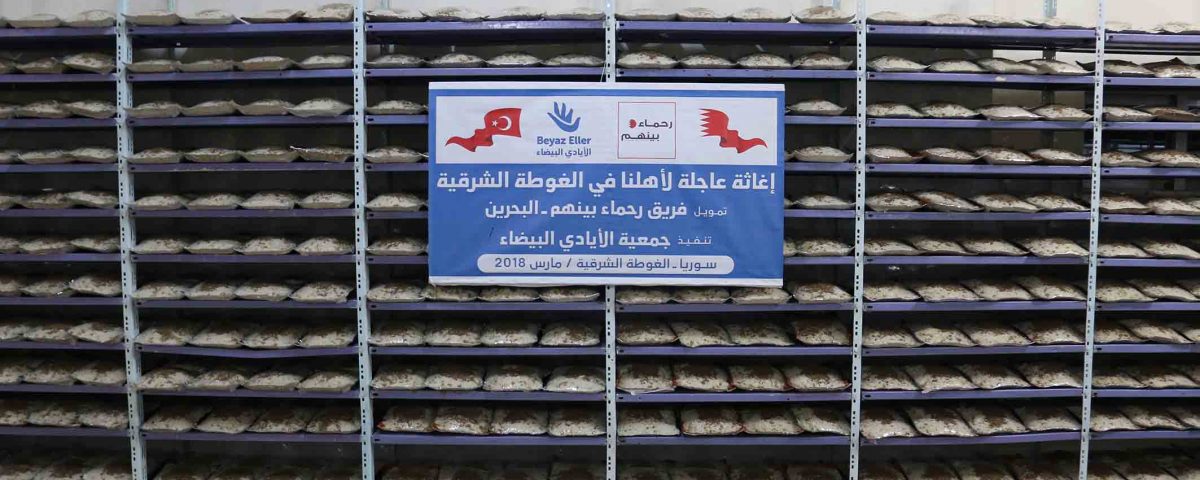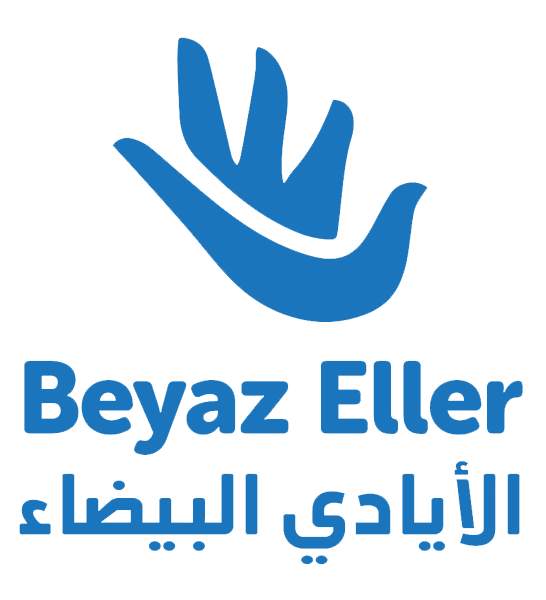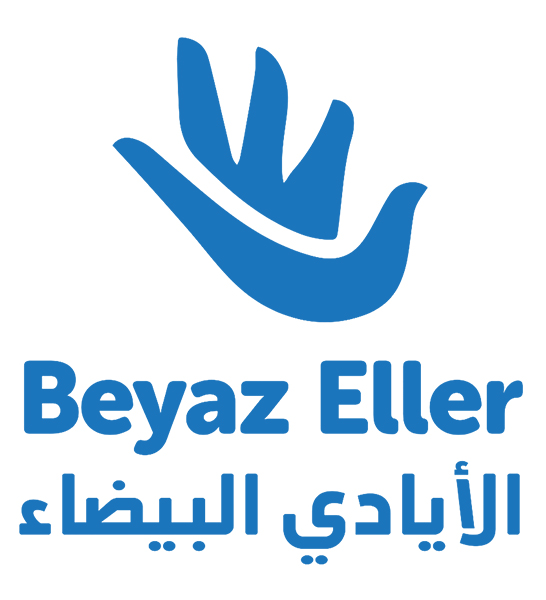“Urgent Relief” for Eastern Ghouta, Supported by Ruhama’u Baynahum

Extreme Misery
As the longest in modern history, the military siege in Eastern Ghouta is a tormenting experience for thousands of the afflicted households. With all livelihood sources blocked up, food and water scarcity, absolute absence of public facilities, dearth of medicine supplies, death, loss, and overwhelming life threats along with vanishing survival opportunities, our duty becomes to provide urgent humanitarian intervention and to support the afflicted and needy communities to the best of our effort.
Project mechanism and results
Beyaz Eller managed to access several humanitarian cases and deliver support and assistance to the neediest households. Supported by “Ruhama’u Baynahum” Team of Bahrain, our team successfully delivered 2,800 hot meals consisting of basic nutrient values (rice and meat), 3,400 bread bundles, and 45 firewood shares for cooking and heating purposes (each weighed 100 kgs).
Our effort was well-coordinated and followed an extensive need analysis to rush assistance to the neediest individuals and households. With hope to alleviate their suffering, share their pain, and support them through a dire situation that poses direct existential threats, we reached assistance to 6,457 households in besieged Ghouta (averagely 3,237 individuals per household).
In the distribution site, a female benefiter explained her misery after she had lost her husband to violence before seeing their second child.
Dreams shy away
She says: “life has put me in a dire position; I must grow up my children and protect them against death, hunger, and all other threats that closely encirculate our lives.” She added: “ I am taking strength from two crawling toddlers who try to discover life amid desperate conditions.”
One of the benfiters is a mid-age young man who once had a real estate office before the financial crisis and siege put his dreams to an end. Nowadays, he works in collection and disposal of ruins and war remnants but the reward is too little to afford self-sufficiency.
Even the elderly are not away from harm
In the shelter, we met an over-sixty elder who still works in agriculture despite losing most of his family members, as the house was ruined over their heads. Explaining his hardship, he says: “my feeling towards loss and pain is inexplicable. But I have to keep going to support my grandchildren. These kids are too young to realize the bitterness of war. They need a lot of caring and support.”He added: “I must work to afford food. But the economic crisis is so critical that I fail to afford the simplest need.”
A lasting support
Towards the continued current of suffering, our teams inside Syria will strive to support the afflicted communities wherever there are, and will keep providing every possible assistance and service that enable them overcoming this hardship.




